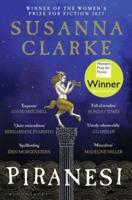Publisher's Synopsis
This historic book may have numerous typos and missing text. Purchasers can usually download a free scanned copy of the original book (without typos) from the publisher. Not indexed. Not illustrated. 1905 edition. Excerpt: ... BOOK ONE. Now Dan and Angul, with whom the stock of the Danes begins, were begotten of Humble, their father, and were the governors and not only the founders of our race. (Yet Dudo, the historian of Normandy, considers that the Danes are sprung and named from the Danai.) And these two men, though by the wish and favour of their country they gained the lordship of the realm, and, owing to the wondrous deserts of their bravery, got the supreme power by the consenting voice of their countrymen, yet lived without the name of king: the usage whereof was not then commonly resorted to by any authority among our people. Of these two, Angul, the fountain, so runs the tradition, of the beginnings of the Anglian race, caused his name to be applied to the district which he ruled. This was an easy kind of memorial wherewith to immortalise his fame: for his successors a little later, when they gained possession of Britain, changed the original name of the island for a fresh title, that of their own land. This action was much thought of by the ancients: witness Bede, no mean figure among the writers of the Church, who was a native of England, and made it his care to embody the doings of his country in the most hallowed treasury of his pages; deeming it equally a religious duty to glorify in writing the deeds of his land, and to chronicle the history of the Church. From Dan, however, so saith antiquity, the pedigrees of our kings have flowed in glorious series, like channels from some parent spring. Grytha, a matron most highly revered among the Teutons, bore him two sons, Humble and Lother. The ancients, when they were to choose a king, were wont to stand on stones planted in the ground, and to proclaim their votes, in order to foreshadow from the...








